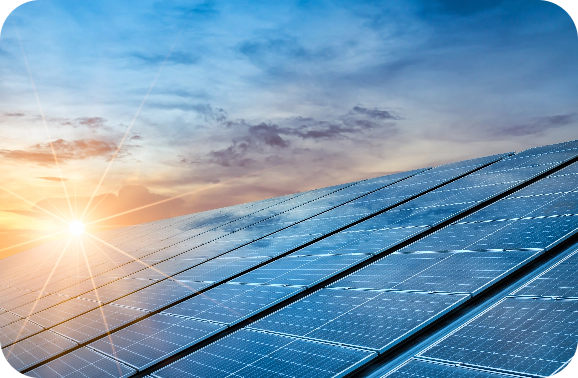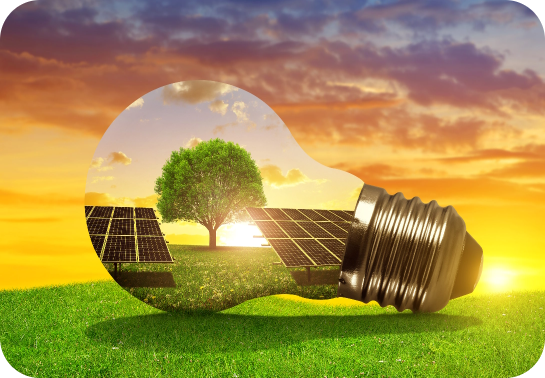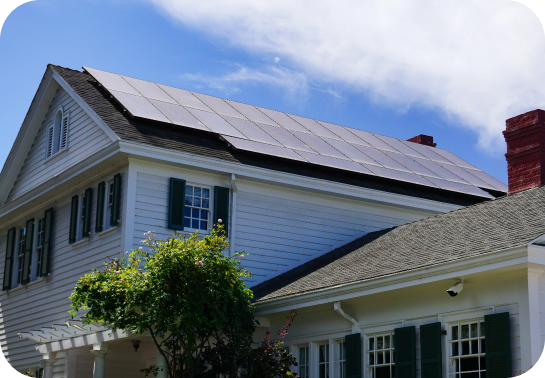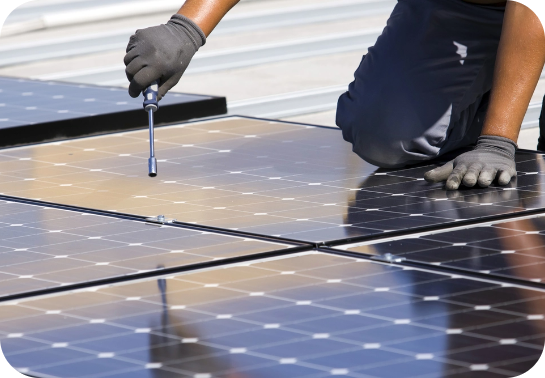Is Solar Energy a Renewable Resource?

Solar generally has a good reputation, but is sunlight renewable or nonrenewable? To best answer this question, we need to understand what a renewable resource is. For an energy source to be considered “renewable,” it needs to appear in abundance and replenish itself faster than it can be used, so is solar energy a renewable resource?
How is Solar Energy Renewable?
With the constant energy from the sun being plentiful, bathing the earth in year-round sunlight and radiation, the sun itself is a well of energy that is practically inexhaustible, a continuous energy supply for all intents and purposes for the world.
To understand what makes solar panels renewable energy, let’s ask ourselves, what is solar energy? The immense, self-sustaining nuclear reaction within the sun produces energy and costs humanity nothing to produce it. Though we need to manufacture the technology we use to make that energy useful to us, solar provides us with boundless energy that far exceeds the energy we spend to harness it. And most impressive of all, solar energy will continue to be a viable energy source on earth for billions of years.


How Solar is Used
Solar energy can be applied in many different circumstances, from a personal energy source for a home or business to powering remote communities or even satellites in space. Solar cells can also provide energy for portable, self-contained devices in smaller applications.
How Solar Energy Helps the Environment
A major benefit of solar energy is that it relies on renewable resources and is a fairly green energy source compared to others. While the production and disposal of solar panels have some environmental impact — some hazardous chemicals need to be used in production — the day-to-day operation of solar energy itself does not produce any emissions or pollutants.
Additionally, solar technology is continuing to develop and improve, making the panels themselves more efficient at producing energy and limiting the impact of their production even further. Efforts are also being made to find ways to recycle old panels.
Solar energy requires a very small amount of water, especially compared to turbine-based energy production methods, which makes solar particularly well-suited to dry areas with limited access to water.
The Solar Market Today
There has been huge growth in the solar market in the past several years. Demand for renewable energy sources has increased, and solar panels have become progressively less expensive.
In 2021, power generation from photovoltaic solar increased by 22% over 2020, breaking 1000 TWh worldwide. According to the IEA, solar energy could exceed 7400 TWh by the year 2030 if current trends keep up and effort is increased to maintain efforts in solar advocacy and installment in the coming years.

Solar Technologies — 3 Ways to Harness Solar Energy
Three main technologies can reasonably be considered “solar energy”:
Photovoltaic (PV) solar panels
PV solar panels are comprised of silicon solar cells, a semiconductor that reacts to sunlight by producing an electrical current.
Concentrated solar power (CSP) systems
CSP systems are large-scale operations that use a complex system of mirrors to concentrate the sun’s rays onto one spot, where the heat produced can drive a turbine to produce energy.
Solar water heating (SWH) systems
While not an energy source per se, SWH systems allow users to heat the water for their home or business by passively conducting heat from the sun. Instead of using energy from another source, SWH systems allow you to heat your water sustainably.
The Bottom Line: Solar Energy is Renewable
So is solar renewable or nonrenewable?
Solar energy is a valuable tool for reducing greenhouse gas emissions and combating climate change. With clean energy production from renewable resources and an overall decreasing price tag, solar is a great option for homeowners looking to decrease their reliance on the grid and reduce their utility costs as well as their carbon footprint. Though the production and disposal of solar panels have a small environmental impact, this is relatively minor compared to other energy sources and far outweighed by the clean and efficient energy they provide during normal operation.
If you’re interested in installing clean and efficient energy on your home or business, contact Axia Solar today to learn how you can reduce your utility costs while helping the environment and becoming more energy independent.
